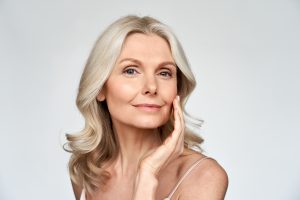Most people figure they must be getting older based on how they feel and look. We wince at our first grey hair, deepening wrinkles, and shifting body fat. We huff and puff climbing the stairs, forget names, and occasionally leak fluids. We relate to the line from a Leonard Cohen song, “I ache in the […]
Tag: anti-aging
A Genuinely Useful Blood Test
Many a time, in person or via phone, someone will say a variation of “Look, I’m taking all these vitamins and minerals but I really don’t know what I’m doing. I think I’m eating right, but I might have some vitamin or mineral deficiencies I know nothing about and I don’t know the consequences.” This […]
NAD+: Finally Getting Serious About Anti-Aging Therapy
We’re living in a time of major, worldwide breakthroughs when it comes to understanding how we age and also the steps we can take to not only slow down aging, but to all appearances reverse the process. Over history, the fountain of youth seekers came, literally and figuratively, to dead ends, but back then Ponce […]
Diagnostic Tests Chart Path To A Healthful Longevity
Let me start with a piece of disappointing news. You know that battery of blood tests ordered by your family doctor or internist during your dutiful check-up? That complete blood count (CBC), comprehensive metabolic profile (CMP), and so forth? All of them are pretty useless. Yes, they’re almost always covered by insurance, so they’re free, […]
To A Long and Healthy Life!
You may have read earlier this summer about the public health statisticians who announced that Chicagoans could get a reasonable estimate about how long they’ll live based on their neighborhood, sort of a Death by Zip Code. If you live in Streeterville, you’ve got a good chance to reach 90. If you’re struggling in Englewood, […]
Male Menopause: Is It Real?
Short answer: Yes, but don’t hope for any quick fixes—that’s pharmaceutical industry-think. Another way to view male menopause: Sure, a ball will bounce, just not as high over time. I get asked about male menopause all the time, almost always by women (who, admittedly, represent the majority of my patients) and only rarely by my […]
Nutritional IV Therapy, Part One
You’ve probably, at some point in your life, had an intravenous (IV) line. You felt the tiny pinch of the needle, watched as an adept nurse’s hands taped the needle in place, and then stared, perhaps a bit apprehensively, as a bagful of fluid dangling above coursed through a plastic tube and into your body […]
Antioxidants
Over the last several decades, scientists have discovered that the body’s formation of unstable oxygen molecules called free radicals is unavoidable–every cell produces tens of thousands of them each day. We’re also exposed to free radicals in the environment on a daily basis. Cigarette smoke, for instance, is one of the most concentrated sources of free radicals.
Anti-Aging Supplements
In a previous health tip, I discussed what I considered to be the pointlessness of spending your hard-earned money seeing a specialist in anti-aging medicine. This tip is for those curious about anti-aging supplements. But first, a quick list of the current theories about why our bodies age: Genetic Genes are probably overrated, but if […]
The Key to Anti-Aging?
Well, that’s certainly an eye-catching title.
Recently in the journal Internal Medicine World Report, researchers reported progress on a very specific family of enzymes called sirtuins, which significantly extend life in such primitive organisms as yeast, worms, and flies. They believe that sirtuins may be able to control such age-related disorders as obesity and type 2 diabetes in humans.

